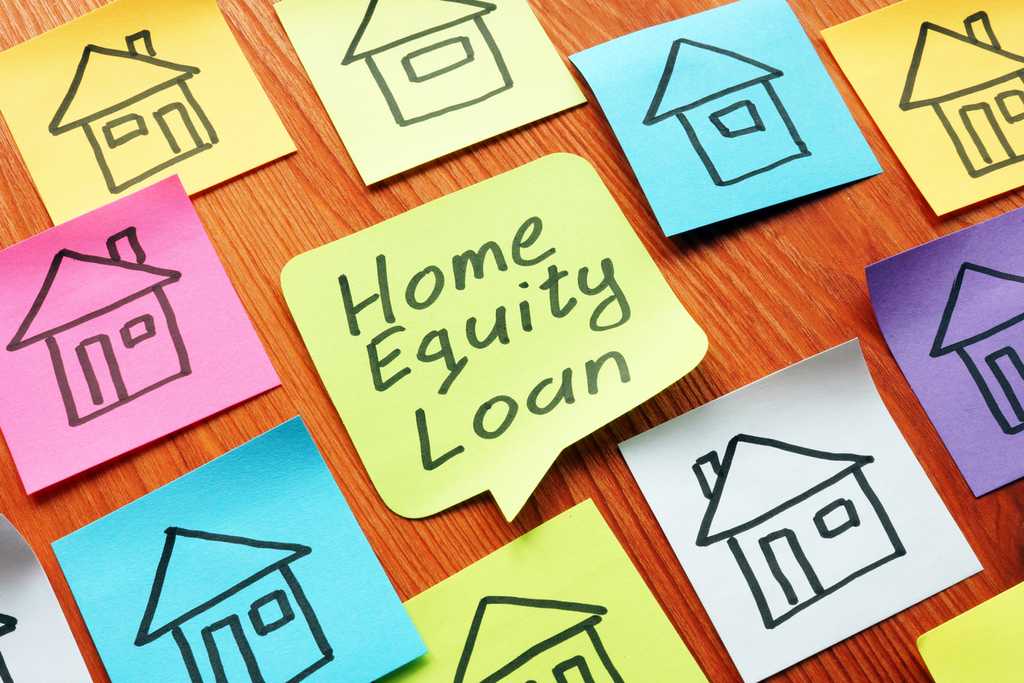Home values have risen dramatically over the last few years, which means many families may have more home equity than they realize. The National Association of Realtors (NAR) even reported that the median sales price for existing homes went up 10.8% from July 2021 to 2022. That's a dramatic year-over-year surge for sure, but it also marks 125 consecutive months of year-over-year increases.
If you're a homeowner who is hoping to tap into your equity in order to access cash for any reason, there are two main financial products that can help you do that — home equity loans and home equity lines of credit (HELOCs). Both types of second mortgages let you get some money out of your house without having to move or sell your property, although you'll need to use the value of your home as collateral either way.
But, which option is better for your finances? That really depends on what you need the money for, what your goals are and how long you want to spend paying your home equity product off. Read on to learn how home equity loans and home equity lines of credit (HELOCs) compare and who they're best for.
How does a home equity loan work?
A home equity loan is a type of loan that relies on the equity in your home as collateral. Like personal loans, home equity loans come with fixed interest rates, fixed monthly payments and a fixed repayment schedule that will not change. Home equity loans also give you a lump sum of money upfront, and most lenders will let you borrow up to 80% of your home's value in total across your first mortgage and home equity loan.
Because home equity loans use the value of your home as collateral, you have the potential to face foreclosure on your home if you don't repay based on the agreed upon schedule. Of course, the same is true when it comes to the primary mortgage on your home.
To find home equity loans, you can shop around with traditional banks, credit unions and many online lenders. When you do so, you'll want to compare lenders based on any fees they charge, the interest rates they're planning to offer, the loan's repayment term and more.
How does a HELOC work?
Where home equity loans give you a lump sum of cash upfront, home equity lines of credit (HELOCs) work differently. Instead of letting you borrow a specific amount, HELOCs extend you a line of credit you can borrow against, typically with a variable interest rate.
Because you may or may not use your entire line of credit, the monthly payment on your HELOC can vary over time. You can also borrow funds from your HELOC multiple times during the draw period if you prefer. This is based on the fact that many HELOCs offer a draw period that can last for a decade or longer. The draw period is then followed by a repayment period where you're required to make monthly payments on your HELOC balance but you're unable to borrow any more money.
Because home equity lines of credit (HELOCs) use the value of your home as collateral, you have the potential to face foreclosure on your home if you don't repay the amounts you borrow. You can also find HELOCs through traditional banks, credit unions, and an array of online lenders.
When you prepare to shop around for a HELOC, you should compare lenders based on any fees they charge, the variable rates they're planning to offer, the loan's repayment term and draw period and more.
Comparing home equity loans and HELOCs
| Home equity loan | Home equity line of credit (HELOC) | |
|---|---|---|
How it works | Borrow a lump sum of money from the equity in your home | Access a line of credit you can borrow against with the equity in your home as collateral |
Type of interest rate | Typically fixed | Typically variable |
APR | Can include points, fees, and other charges | based on interest alone with no points and other financing charges included |
How interest works | Pay interest monthly based on the total amount you borrowed | Only pay interest on amounts you borrow from the line of credit |
Repayment term | Repayment term lasts the full duration of the loan | Draw period followed by a repayment term |
Common uses | Home remodeling projects, home repairs, college tuition, debt consolidation and more | Home remodeling projects, home repairs, college tuition, debt consolidation, emergency funds, and more |
How do you get a HELOC or home equity loan?
Both home equity loans and HELOCs are offered through a wide range of banks, credit unions, and online lenders. To qualify for this type of loan, you need to have considerable equity in your home you can borrow against, as well as a steady income and the ability to repay.
Getting a home equity loan or HELOC can also require you to have a good credit score or better, even though you're using your home's value as equity for the loan. Ultimately though, the approval requirements for home equity loans and HELOCs vary by the lender.
To get a home equity loan or a HELOC, you should:
- Determine how much home equity you likely have.
- Shop around to compare lenders based on their rates, fees, and loan terms.
- Be prepared to submit information regarding your employment history, income, home and credit history.
- Apply for the best loan option you can find online.
How to calculate your home equity
Determining how much home equity you have can be tricky, mostly because your home's value may be difficult to pinpoint at any given time. Websites like Zillow can give you an idea of how much your home is worth right now, and you can also look at previously sold homes in your area online to get an idea.
Once you have an idea of what your home is worth right now, you can determine how much equity you have in your home by subtracting how much you owe on all loans secured by your house from its value.
If your home is worth $400,000 and you have a first mortgage for $250,000, for example, you have $150,000 in home equity.
$400,000 - $250,000 = $150,000
Also note that you just need a general idea of your home's value to apply for a home equity loan or HELOC. When you do apply and move forward with either type of second mortgage, the lender will most likely order an appraisal of your home to confirm it's official value. This step will let you know exactly how much you can borrow, whether it's how much you thought or even more than that.
Can you get a home equity loan during the pandemic?
While the COVID-19 pandemic is hopefully winding down, the effects of it are expected to last for years. Fortunately, banks and other financial institutions have never stopped loaning money to qualified borrowers. With housing prices at an all-time high, now is also as good a time as any to borrow from your home equity if you need to.
What do you need to get a home equity loan or HELOC during the pandemic? According to Bank of America, lenders will typically look at your credit score and history, employment history, monthly income, and monthly debts when you apply. This means that, provided your finances have remained stable during the pandemic and you have plenty of equity in your property, getting a home equity loan or HELOC shouldn't be a problem.

